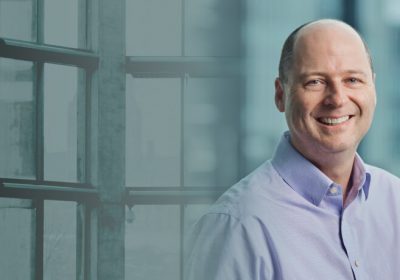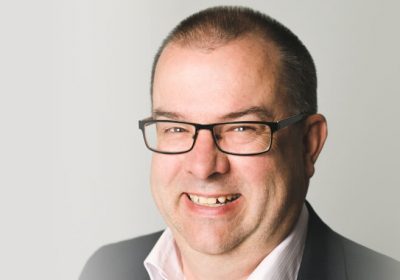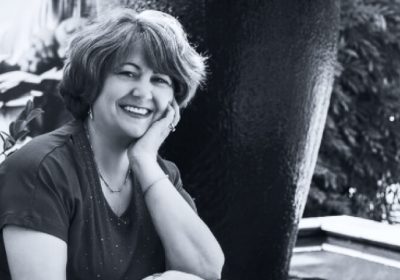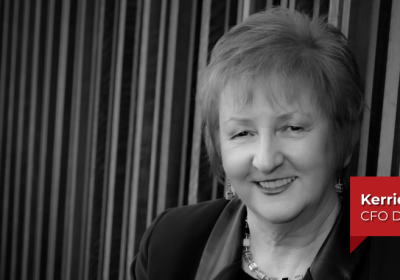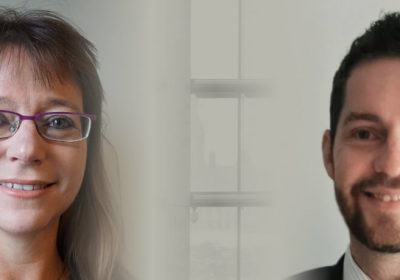
- Author: Jessica Mudditt
- Posted: November 12, 2023
Global to Local: Reflections from International Finance Leader Geoff Buchanan
Geoff Buchanan held CFO and CEO roles in emerging markets across Africa, Asia, the Middle East and the Pacific before moving to Australia in 2012. He shares his insights on how to lead diverse teams whilst navigating incredibly challenging environments – such as in Zimbabwe during a time when it experienced the world’s most severe hyperinflation.
Born in Zimbabwe, Buchanan qualified as a chartered accountant with EY before beginning his finance career within several diverse organisations. He is a third-generation Zimbabwean, as both sets of his grandparents moved to the country then known as Rhodesia during the Second World War. Both of his late grandfathers travelled to the country as members of the British South African Police.
Like many young professionals in Commonwealth nations, after graduating Buchanan moved to the UK to gain broader professional experience.
“There were many challenges in Zimbabwe at the time, which militated against continuing my professional career there, and that’s what prompted me to move to the UK initially. I also had a natural desire to travel. Once I began, the travel bug got hold of me.”
After completing his audit career at EY, Buchanan assumed finance roles with companies such as Lex Service plc, the main UK franchise holder of Volvo cars and trucks, before returning to Zimbabwe five years later. After holding two CFO roles in diversified industrials businesses, he then took up a role with Standard Chartered Bank in Zimbabwe in 1998, and he remained with the company for 14 years. He was sent to manage projects and country operations in countries as diverse as Taiwan, Mauritius, Jordan, Singapore and Dubai.
A hundred trillion dollars
“Standard Chartered was great for talent development and it was also a fantastic school of learning. Once you had made it onto their ‘talent list,’ you could be sent all over the world,” he says.
After his first assignment in Zimbabwe, Buchanan spent three years leading a risk-based customer profitability project in Singapore. His first daughter was born there shortly before he was recalled to Zimbabwe to take on the CFO role.
Buchanan seized the opportunity, but it came with immense challenges. The economic situation in Zimbabwe had significantly worsened while he’d been away, and he was returning with a young family.
“The early 2000’s in Zimbabwe were really challenging – there was a shortage of many essential items, including nappies and baby items for our six month old daughter,” he says. “After being overseas for a few years, it was difficult at first to reintegrate back with family and friends. I think this is common for expats returning to their home countries.”
Zimbabwe was experiencing some of the worst hyperinflation seen in modern times. Buchanan keeps a memento of his years in Zimbabwe in his Sydney home office: it is a one hundred trillion dollar note issued by Zimbabwe’s Reserve Bank. Its value at one point dropped to less than one US dollar. Zimbabwe’s currency subsequently collapsed and was replaced by the US dollar although the Zimbabwe dollar still remains.
“People were repricing items in shops by the hour, not by the day or the month,” he recalls. “The hyperinflation rate was the world’s worst at that point. There were so many notes in circulation that a note would be stamped to identify that the bearer accepted it as currency for six months only, and there were photocopied notes because the Reserve Bank had no money left to print new ones.”
On top of this was the HIV/AIDS global health crisis. The outbreak began in the 1980s in Zimbabwe and by 2000, a quarter of the population were infected with the illness. The stigma around the disease made people reluctant to reveal their illness and so avoided treatment.
With many of his staff sick and unable to attend work, Buchanan spent a large chunk of his time focused on welfare support – both for staff and the bank’s customers. He opened up a fuel depot for staff and arranged food deliveries to arrive in the basement carpark.
“Food became a part of the salary package because the local currency was virtually useless,” he says. “We would also give staff access to limited amounts of foreign currency so they could go and buy essential items in South Africa. I was also asked to buy commercial buildings as a hedge against inflation. It was sort of Alice in Wonderland type stuff, except without the humour! The experience taught me some good lessons about resilience and managing challenges by learning to prioritise and focus on real, life-changing issues.”
Navigating cross-cultural complexities
After two years back in Zimbabwe, Buchanan was posted to Mauritius as country manager for Standard Chartered for the next two years, which was a complete – and welcome – change of pace. However, being a Francophone country, he had to adapt to language and other cultural nuances. His second daughter was born in Mauritius.
One of his biggest career achievements followed when he was posted to Taiwan to head up the integration of the bank’s third largest acquisition at the time. It was intensely demanding and he encountered a fresh set of challenges, including a language barrier and a different regulatory environment.
“Deference to authority was an issue in a number of countries I worked in, including in Taiwan. It’s good in the sense that everything works smoothly, however sometimes you find that more junior staff might give you a response which they believe you would prefer to hear rather than a ‘bad news’ response. They are not trying to deceive you – it’s just a culturally accepted norm to try not to upset the boss, so I learnt to pay attention to nuances in the conversation.”
Buchanan’s team in Taiwan achieved the deliverables of the integration and he was offered a CEO role in Jordan with additional responsibility for Iraq, followed by a regional business development role for MENA out of Dubai, which included responsibility for developing banking relationships in Libya, Egypt, Kuwait and Iraq. An already complex landscape became even more fraught with the onset of the GFC, coupled with the beginning of the Arab Spring in 2010.
Buchanan had been holding Australian permanent residency, but was at risk of losing it unless he relocated here, so he and his family moved to Australia in 2012 following his role at Standard Chartered becoming redundant. He joined ANZ Bank and was sent to manage the bank’s operations in the Solomon Islands, where – like Zimbabwe – corruption is endemic and remains a constraint to doing business, with such practices being more accepted than they would be in OECD markets.
“It’s a balancing act between respecting the cultural norms that influence ways of doing business, with the knowledge that you’re working for a large corporate and cannot and should not compromise theirs’ or your own ethical standards and respect for compliance,” he says.
For example, during his tenure in the Solomon Islands he was directed by a government official to transfer his allowances for an upcoming visit to Australia directly into his personal account rather than through the government treasury account. Buchanan refused and was summoned to appear before the official. “He tried to explain to me the way things work there, and I respectfully but firmly advised that I could not action the instruction as it was contrary to both the bank’s policy and the treasury guidelines and that I would have to report the request to both ANZ and to the Central Bank if it was not withdrawn. After that day, I was never again approached by any other government official with any similar requests.”
Buchanan’s most recent role in Australia was Interim CFO of Austal Limited, an ASX 300 global shipbuilding and maritime technology company. He is currently seeking a fresh CFO role, either in Australia or offshore.
Geoffrey Buchanan’s tips for leveraging overseas experience when you return to Australia
Localize your CV
“Recruiters and corporates in Australia tend to discount some of the value that candidates with international experience can bring to a role, so it is important to frame your CV in a way that demonstrates that your overseas experience and achievements can add value in the Australian market. For example, rather than highlighting the successful integration of a large domestic bank in Taiwan, I emphasise the scale ($1.8 billion acquisition cost, 95-branch integration) and outcomes (earnings accretion within two years) that are directly relatable to any large acquisition in Australia.
Invest in personal relationships and networks
“I would say that in all of the countries that I have worked in, face-to-face contact still trumps online interactions. Obviously, COVID-19 changed things for a while, but I still believe that there is no substitute to developing and nurturing face-to-face business relationships.
Another tip is to reconnect with your Australian network well in advance of your actual return. And make time to grow your network further once you’re here. I didn’t know anyone in Australia so I pounded the streets to meet people as soon as I arrived. The earlier and deeper you can reconnect, the better.”
Obtain Australian credentials
“Demonstrate a willingness to get up to speed with local regulations, policies and processes in Australia – especially on technical issues. For example, when I came to Australia I completed the Australian Institute of Company Directors (GAICD) course and converted to an Australian Chartered Accountant (CA ANZ).”



